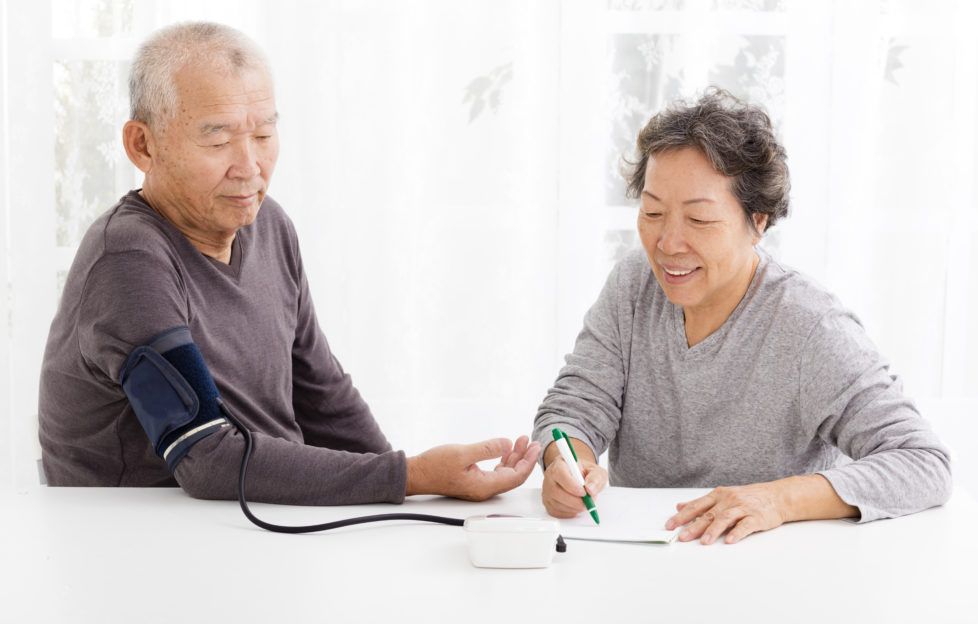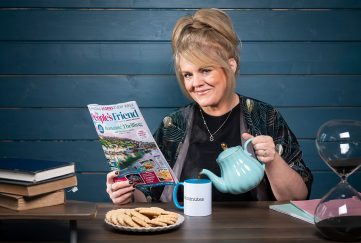Know Your Numbers — It Could Save Your Life

To help highlight Know Your Numbers! Week, which begins on Monday, September 7, we got in touch with Blood Pressure UK to find out why this is so important.
Katharine Jenner, CEO of Blood Pressure UK, provided this helpful advice.
High blood pressure is often called the silent killer.
That’s because it rarely has any symptoms, yet it causes nearly two-thirds of strokes — and nearly half of all heart attacks.
Shockingly, as many as six million people, of all ages, are thought to have high blood pressure which hasn’t been diagnosed.
They only find out that their blood pressure is too high when they are being screened, perhaps for a procedure, or have a heart attack or a stroke.
Your blood pressure isn’t something you can see or feel, but it’s there in your arteries. It’s the force of your blood pushing against your blood vessels’ walls as it flows around your body, pumped rhythmically by your heart.
Your blood pressure can either be healthy, sometimes it can be low or, more often, it can be high.
This puts your health at risk.
So why does your blood pressure matter?
If your blood pressure is in the healthy range, this protects your heart and your blood vessels.
If it’s raised, your blood pushes with too much force against your artery walls, and they become damaged.
This leads to a range of problems including heart failure, kidney disease, vascular dementia, and poor circulation causing pain in the legs, feet and chest – which can make it difficult just to walk and go about your daily life.
Blood clots can form in the damaged arteries and become lodged in a blood vessel, causing heart attacks and strokes.
But the good news is that high blood pressure is usually preventable, which is why knowing your numbers is the most important first step you can take for your health.
What causes high blood pressure?
Some people may have high blood pressure as the result of another illness, especially kidney disease.
However the type that nine out of 10 people have doesn’t have one particular cause, and comes down to a number of factors that can all add up.
These include growing older, your genes, a history of high blood pressure and heart disease in your family, and if you are from black or south Asian descent.
But the most important factor for most people is lifestyle.
What you eat and do each day throughout your life decides what your blood pressure will be.
Know your numbers
There is only one way to know your blood pressure numbers. That is to have your blood pressure measured — and it could save your life!
It’s very quick, simple, painless, and usually free.
You can go along to your GP; practice nurse or pharmacist, or with a simple bit of kit you can do it yourself at home.
That’s the aim of Know Your Numbers! Week 2020.
What’s more, measuring your blood pressure at home can actually give you more accurate results than in clinic. This is because sometimes the stress of being in clinic actually raises your blood pressure (we call it “white coat syndrome”).
Plus, at home you can take it more often, so you will get a more realistic picture.
People often tell us they find measuring their blood pressure at home empowering. It puts you in control.
Your blood pressure will be written as two numbers, a top number and a bottom number.
The top number is called your systolic blood pressure. It’s when your blood pressure is at its highest when your heart beats (pumping the blood out to the blood vessels).
The bottom number is your diastolic blood pressure, when your blood pressure is at its lowest inbetween heart beats (when the heart is filling up).
The top number is the most important, especially if you are in the older age range.
A healthy blood pressure reading is 120/80 millimetre of mercury or below.
For more information on Know Your Numbers! Week, click here.
For more health advice from “The People’s Friend”, click here.





